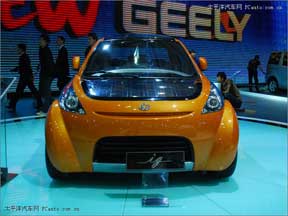Recently the Chinese motor company Geely showcased their Gleagle IG concept car at the Shanghai Auto Show. This three-seater is made of steel, is equipped with a solar panel hood and will cost only $2,250 USD.
It’s said to be the cheapest car on the planet, 10% cheaper even than the Tata Nano (formerly the cheapest car on the planet).
Economic scarcity is a funny thing. When something that’s scarce (expensive) becomes abundant (cheap), that abundance simply causes something else to become scarce. Caracas may have the cheapest gasoline on the planet . . . but they also have some the worst traffic humanity’s ever seen.
So what happens when our cars become cheaper than expensive bikes? Better yet: What happens when they become cheaper than public transit?
Will never happen, you say? When was the last time you saw a transit operator drop their fares?
As long as transit operators keep raising their fares (and lowering their level of service) and car companies keep driving down the price and size of vehicles, eventually the price of a car is going to be cheaper than an annual transit pass.
And that changes everything. Make an electrically-powered Gleagle and suddenly transit loses whatever moral high ground it once had. It’s at that point that scarcity kicks in again. After all, when cars are abundant, road space becomes scarce.
The scarcity of roads is one of the only things that will keep public transit alive (at least in its current form) to see the 22nd Century. But once roads are that clogged with micro-cars, vespas, cyclists and pedestrians how are Light Rail trains, Streetcars and Buses going to get around? They won’t.
At that moment transit will be forced to make a decision: Do we go below or above the traffic? There’s no other option.


2 Comments